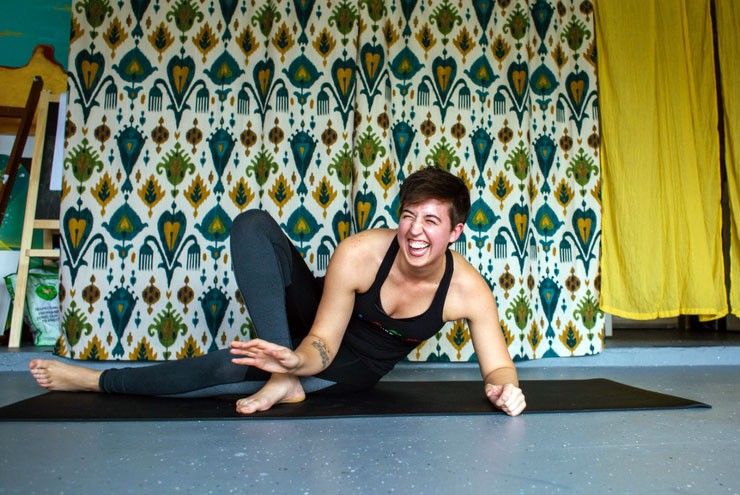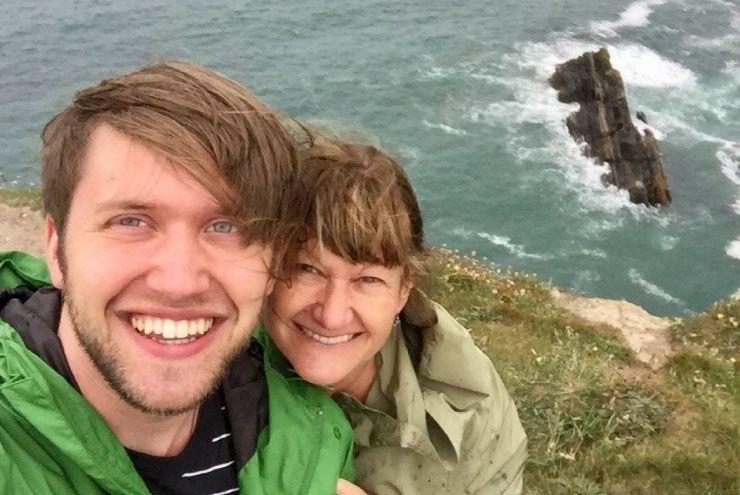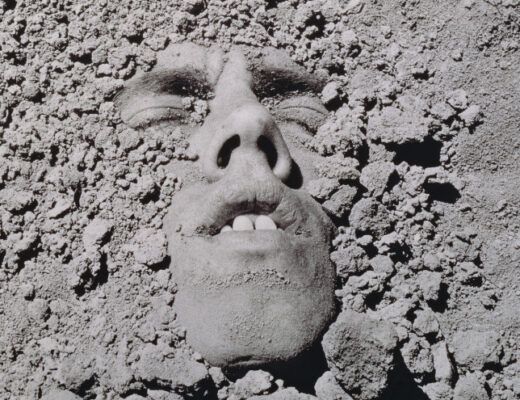A Conversation Curated by Josh Inocéncio
Characters:
Josh Inocéncio
Rachel Afi Quinn
Trevor Boffone
Inspired by a friendly yet fiery conversation with my friend about which states constitute “the South,” I decided to curate a more formal dialogue between Dr. Rachel Afi Quinn, Dr. Trevor Boffone, and myself—all queer people based in Houston with roots spread throughout the region—where we could hash out our ideas on what the South truly is. The following is an edited version of our conversation…
Josh Inocéncio: First, let’s go around, introduce ourselves, say where in the South you’re from, and how you identify! I’ll begin: I’m gay and Latino. I grew up in the suburbs of Houston with Kentucky as a second home. I also lived in Tallahassee, Florida for three years.
Rachel Afi Quinn: I was born and raised in Durham, North Carolina, and I’m a queer black and Jewish woman. I have lived in many places in the U.S. After graduate school, I was glad to move back to the South.
Trevor Boffone: Queer white man born and raised in New Orleans, but I’ve been in Houston for five years. Growing up, I never once considered myself southern, but I did identify with New Orleans and Louisiana. When I went away to college in Oklahoma, I had a bit of a culture shock because—while I had never considered Oklahoma to be part of the South—everyone there identified as southern. Now in Texas, I’ve had similar moments and it’s taken me a while to see the southern-ness of Houston.
RQ: I always say I come from North Carolina, which is definitely the South, but not like this Texas I am getting to know. It’s this South-Southwest-Border-Region that is nothing like North Carolina.
JI: In the initial debate I had with Trevor, I argued that Houston was the western threshold of the South, because I don’t see San Antonio or El Paso as part of the South at all. That’s southwest.
TB: I think the idea of Texas as a fringe southern state is a fascinating concept. Growing up in Louisiana, everyone across the state identified as southern, often as part of the Old South, whereas people in Texas identify in so many different ways.
JI: Oh, you’re right, Trevor. Most of my early travels were road trips between Texas and Kentucky to see my mother’s family, and we always passed through Louisiana, Alabama, Mississippi, and Georgia—to me, those states were the “Deep South.”
RQ: I didn’t grow up in the Deep South.
JI: Me neither.
TB: To me, growing up in the Deep South meant being uneducated about major events in our country, such as the Civil War. I didn’t realize what the Civil War was actually about until I moved away. The Deep South has a way of celebrating the plantation era as the “good ol’ days.”
RQ: We would go on historic plantation tours in North Carolina and Virginia where the tour guide would not even mention slaves.
TB: Same! Slavery was never really mentioned on plantation field trips. Or, it was framed in a way that suggested the slaves were just “workers.” These plantation field trips were a huge deal because they meant an entire day off school. And people still get married and have major events at some of the more beautiful plantations, such as Oak Alley and Nottaway.
RQ: Another marker of the South for me was the labor population. Growing up in Durham in the ‘80s, labor was African-Americans in the kitchens—in the cleanup detail—at the university. Nowadays, it’s very Latino in North Carolina, because of the farms that brought migrant workers.
TB: My parents grew up in segregated New Orleans and had zero friends that were people of color. My mom had two full-time housekeepers—“the help”—when I was growing up. In the ‘80s and ‘90s, my school was largely Anglo, but my friends were mostly black girls and other people of color. This couldn’t have happened a generation prior—even growing up, it was very clear that I wasn’t allowed to date anyone who wasn’t white. I always challenged this because it didn’t make sense to me.
RQ: I grew up in a white, liberal, middle-class community that wasn’t very integrated, either—just a few mixed kids of color and a few black families at my private school. I didn’t see black people with money except for the small group on the Duke University campus. However, I can clearly remember the transition to a Latino South because I was in high school volunteering at a free camp of inner city kids—all black—in Durham. There were three kids from Mexico who spoke little English. Now, those kids have married and that whole side of East Durham has become Latino, primarily Mexican and Salvadoran. In Durham, we also have the Hayti community—a historic African-American community—that put a freeway through in the ’70s, driving out black-owned businesses. Like so many American cities…
TB: New Orleans had a major influx of Central Americans who came to rebuild the city after Katrina and they have stayed. The fabric of the city is slowly becoming more diverse (but it’s not always inclusive). It’s the Nuevo South!
JI: Semi-related to the presence of plantations: the major Confederate monuments have come down in New Orleans. But I wanted to know, Rachel, how extensive was Confederate flag pride in Durham? One thing that gives Texas its borderland nature, I think, is the fact that Texas carries its own state pride. While I see Confederate flags all over, the fanfare over them is much bigger in the Deep South.
RQ: At Duke, the students who came to “The Harvard of the South” from the Deep South would hang up their Confederate flags. But you know, I grew up watching Dukes of Hazzard with no idea what that symbol meant.
TB: Oh, same! It was “southern pride.” But again, I had zero education of the Civil War or the Confederacy—or at least, zero unbiased education.
RQ: I went to a small Quaker private school in the woods and had to study Civil War battles, but didn’t understand what that had to do with me. Finally, I read Toni Morrison’s Beloved my senior year. And when I went to Connecticut, I felt so southern. Some folks from the northeast didn’t know any black people. I missed my pine tree forests and red clay. Still do!
TB: Same. I had to leave the South to feel southern.
JI: For me, it was a bit different. I went to Tallahassee for graduate school, but many of my classmates were from the Miami area and they made me feel southern. They made fun of the accent I didn’t know I had, like the way I say “rural.”
RQ: I didn’t have the accent, really, because my mom is from the North. My nieces have it though—it’s there just a little bit. It always makes me feel at home. I remember the thick accents that would come into our middle-class mixed race household with the repair folks—baseball caps and mullets on white guys. The plumber, the carpenter, the painters…
JI: You know, even with the horrible anti-LGBTQ legislation in Texas, I still feel a reluctance to leave. Part of it is the “I should stay here and fight to make a better place,” mentality, but part of it is the comfort with the South. Like the accents, as you said, or the trees, the bayous, the memories, the ancestors who brought us here.
RQ: I can’t abandon the South. The fighters are here. Texas is so much the Global South. It feels familiar to the Dominican Republic where I have lived. And Ghana.
JI: Right! I often get miffed at friends in coastal cities because the fights are just easier for them. They don’t get what it’s like down here.
TB: Yes!
RQ: I’ve also lived in California. It’s a lovely bubble, but it’s still just a bubble with its own socio-economic challenges. But it isn’t less racist. However, they do have more progressive politicians representing them. We need a greater number of informed politicians and leaders ready to think beyond a plantation mentality in the global South. Texas needs to be ready to represent all of us living in the South today—in all our diversity.
TB: Texas will turn soon enough.
RQ: And Houston is a particularly dynamic city.
TB: It’s exciting to be here right now.
JI: We have to embrace the nuances of the South! As my friends say, “The South will rise again!,” but in a new way.







